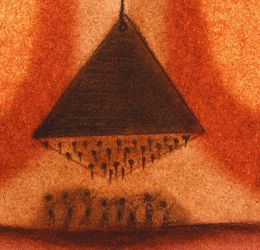In the last few years, on India’s news channels, it is not uncommon to see anchors huffing and puffing hysterically about “anti-nationals”. In fact, the phrase has become near ubiquitous. Every time an individual does not conform to a dominant narrative, their patriotism is called into question.
The horror of what is unfolding in Manipur should make us challenge these faux nationalists.
Over the last few weeks I have been documenting testimonies from the state of those who have suffered, been killed, raped and tortured. Among the victims and survivors are a military veteran, a legislator of the ruling BJP and the ageing wife of a freedom fighter. The horror of what has been inflicted on them should make us banish the loose use of this banal and overused phrase—anti-national—from our political and media lexicon. Either that or we should start calling out those who are truly against the interests of an inclusive India.
The country is still reeling from the viral video in which two women were paraded naked, one of them was brutally gang-raped. I spoke to the husband of one of the survivors. “I served 28 years in the Army,” he told me, “I served in Sri Lanka, in the Kargil war operation. I fought in wars for India. But I could not save my wife.” As his voice fell to a whisper he spoke of his sense of helplessness and fear. “In my worst nightmares I never thought I would see such a day.”
I met Vungzagin Valte, a three-time legislator with the BJP and former adviser to the chief minister. Today, he is barely able to talk after he was crippled in a mob attack. His head was smashed. He was allegedly given electric shocks and he is unable to eat or walk on his own. Though the state government vows that it will pay Valte’s hospital bills and says it has spent close to Rs50 lakh on airlfiting the MLA; his family says they are still struggling financially. They live in tiny rented accommodation—13 of them in three small rooms. For medicines, physiotherapy and other expenses, they are dependent on the charity of “friends and family”.
As houses have been torched and razed in Manipur, the elderly have not been spared either. An 80-year-old woman married to a freedom fighter was burnt alive. Their small village home proudly displayed medals and honours, most recently from president A.P.J. Abdul Kalam.
I have consciously not mentioned which of the victims I chronicle here are Kuki and which are Meitei. For a moment let us put aside the complex and unique history of Manipur that led to these ethnic clashes.
For now let us remember that Manipur shares a long border with Myanmar and 4,000 weapons were looted during this crisis, including high-calibre ones like rocket launchers and automatic rifles.
If anything, the crisis in Manipur calls on us to be genuine patriots. We should be asking tough questions and we should be able to offer empathy. To lose sight of the human tragedy in whataboutery and competitive politics, or in the banality of TV studio debates, would be a travesty.
So, will the faux nationalists please sit down?
editor@theweek.in


